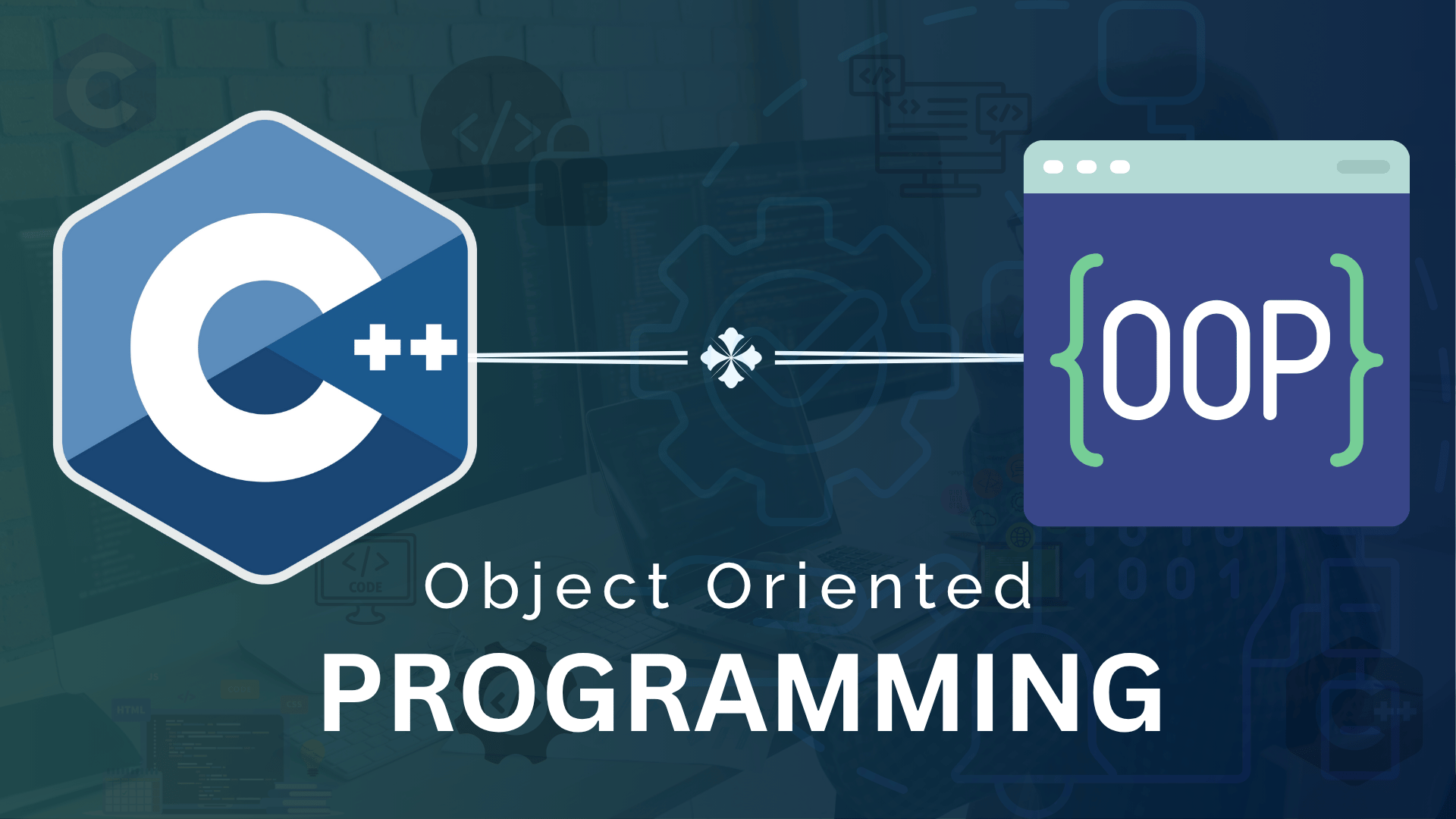
C++ Object Oriented Programming Advance
Course Description
After completing the Object-Oriented Programming (OOP) in C++ Online Video Training Course in Urdu and Hindi, you will become proficient in OOP concepts using C++ and gain the ability to learn other advanced object-oriented programming languages.
Mastering OOP in C++ provides a strong foundation for modern languages such as Java, JavaScript, and Python.
This course covers both basic and advanced OOP concepts, helping you understand class design, objects, inheritance, polymorphism, templates, and file handling in C++. By the end of this course, you will be able to create your own programming projects such as games, management systems, billing systems, and other applications.
C++ provides a variety of features to implement high-performance software or develop your own games and applications.
🧠 Introduction
C++ is a high-level, general-purpose programming language developed by Bjarne Stroustrup in the early 1980s.
Originally named “C with Classes”, it was an enhancement of the C language that introduced Object-Oriented Programming (OOP) concepts.
C++ remained compatible with C while adding powerful features like classes, inheritance, polymorphism, and templates.
It quickly became popular and is now a preferred language for developing professional applications across all platforms.
This course assumes basic knowledge of C++ and expands your understanding to advanced OOP concepts, preparing you to build complex, efficient, and real-world software systems.
📘 What You’ll Learn
By the end of this course, you will be able to:
• Understand the core principles of Object-Oriented Programming (OOP) in C++
• Create and use classes and objects effectively
• Work with constructors, destructors, and member functions
• Implement operator overloading for arithmetic and unary operations
• Apply inheritance — single, multiple, and multilevel
• Use polymorphism, virtual functions, and abstract classes
• Create templates for functions and classes to write reusable code
• Perform file handling with sequential and random access methods
• Use input/output streams for file operations
• Apply OOP concepts to develop real-world projects and applications
• Debug and optimize OOP-based applications
• Prepare for final assessments and certification through structured exercises
💻 Prerequisites
Before starting this course, learners should have:
• 🧠 Basic knowledge of C++ Programming Language
• 💡 Understanding of computer operation and file management
🧩 System Compatibility
This training is compatible with:
• 🪟 Windows Operating System
• 🍎 macOS (latest versions)
• 🤖 Android smartphones and tablets
• 📱 Apple iPhone and iPad (iOS devices)
Learners can access the course using desktop, laptop, tablet, or mobile devices with a stable internet connection.
🎓 Certification
Students who complete the course through Virtual Academy LMS (www.virtualacademy.pk) will be eligible for a Registered Diploma.
To earn the certification, learners must:
• Complete all chapters in the LMS
• Attempt and pass the quizzes associated with each chapter
• Submit any required assignments or projects
After successful completion, students will be able to download their Diploma/Certificate directly from the LMS.
Course Details
- 1. Course Introduction – OOP in C++
- 2. What is OOP? – Object & Classes
-
3. Define Classes & Create Objects (Locked) 11:29 Min
-
4. Access Specifiers in C++ (Locked) 06:11 Min
-
5. Defining Member Functions (Locked) 10:48 Min
-
6. Coding Exercise on Classes (Locked) 13:00 Min
-
Chapter 1 Course Introduction & Basics (Locked)
No Notes available for this chapter
-
1. Constructors in C++ (Locked) 07:17 Min
-
2. Passing Parameters to Constructors (Locked) 06:45 Min
-
3. Constructor Overloading (Locked) 07:28 Min
-
4. Default Copy Constructor (Locked) 10:34 Min
-
5. Destructors in C++ (Locked) 06:34 Min
-
Chapter 2 Constructors & Destructors (Locked)
No Notes available for this chapter
-
1. Objects as Function Parameters (Locked) 06:11 Min
-
2. Static Data Members (Locked) 09:11 Min
-
3. Static Member Functions (Locked) 05:23 Min
-
Chapter 3 Object Interaction & Static Members (Locked)
No Notes available for this chapter
-
1. Friend Classes (Locked) 07:25 Min
-
2. Friend Functions (Locked) 11:16 Min
-
3. Operator Overloading (Locked) 04:20 Min
-
4. Overloading Operators (Locked) 08:17 Min
-
5. Overloading Binary Operators (Locked) 09:21 Min
-
Chapter 4 Friend Functions & Operator Overloading (Locked)
No Notes available for this chapter
-
1. Inheritance Introduction (Locked) 06:49 Min
-
2. Specifying Derived Class (Locked) 10:43 Min
-
3. Accessing Parent Class Constructors (Locked) 11:18 Min
-
4. Function Overriding (Locked) 15:35 Min
-
5. Public Inheritance (Locked) 03:42 Min
-
6. Protected Inheritance (Locked) 07:38 Min
-
7. Private Inheritance (Locked) 4:24 Min
-
8. Multilevel Inheritance (Locked) 11:04 Min
-
9. Multiple Inheritance (Locked) 11:08 Min
-
Chapter 5 Inheritance in C++ (Locked)
No Notes available for this chapter
-
1. Pointers to Objects (Locked) 6:12 Min
-
2. Array of Pointers to Objects (Locked) 07:56 Min
-
3. Pointer to Derived Classes (Locked) 09:35 Min
-
Chapter 6 Pointer & Derived Classes (Locked)
No Notes available for this chapter
-
1. Polymorphism and Its Types (Locked) 05:14 Min
-
2. Virtual Functions (Locked) 7:15 Min
-
3. Pure Virtual Functions & Abstract Classes (Locked) 08:00 Min
-
Chapter 7 Polymorphism & Virtual Functions (Locked)
No Notes available for this chapter
-
1. Function Templates (Locked) 07:48 Min
-
2. Class Templates (Locked) 09:20 Min
-
Chapter 8 Templates in C++ (Locked)
No Notes available for this chapter
-
1. Files in C++ (Locked) 05:07 Min
-
2. File Access Methods (Locked) 05:02 Min
-
3. Streams in C++ (Locked) 07:25 Min
-
4. Reading & Writing Data in Files (Locked) 10:41 Min
-
Chapter 9 File Handling in C++ (Locked)
No Notes available for this chapter











